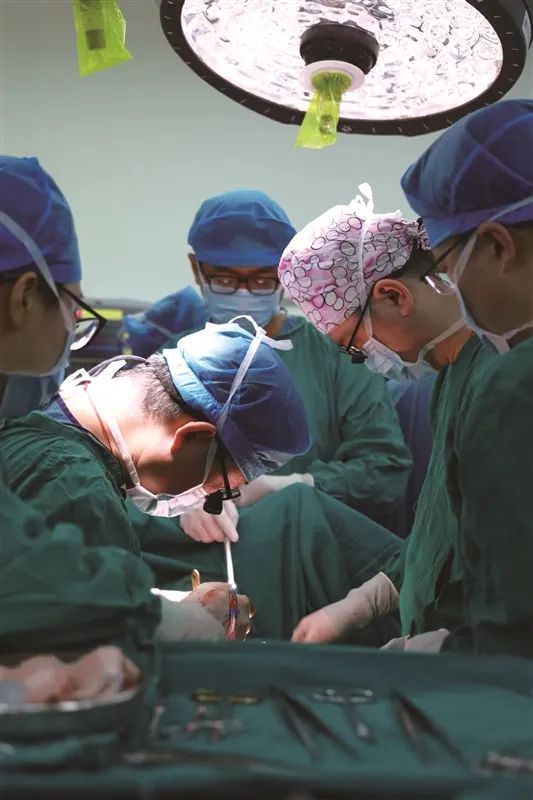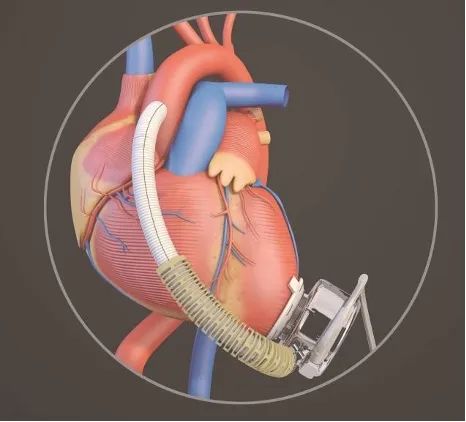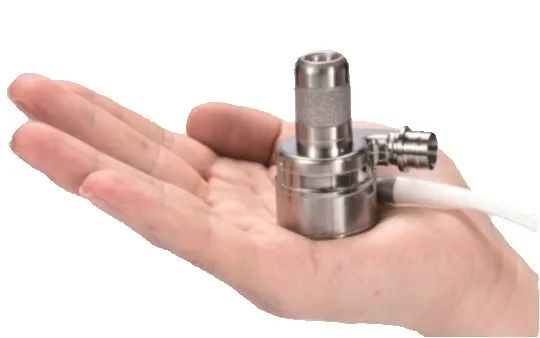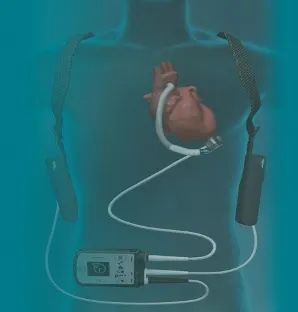First Case! A Patient in Wenzhou Implanted With a Full Magnetic Levitation Artificial Heart and the Core Component Weighed Only 186 Grams
 2023-02-28
2023-02-28
 Office of Cooperation and Communication
Office of Cooperation and Communication
On February 18th, Mr. Chen, who received the first artificial heart implantation operation in southern Zhejiang, got out of bed with the help of medical staff. Two days ago, Wang Jue, deputy director of cardiac surgery in the First Affiliated Hospital of Wenzhou Medical University, and Wang Xianqiang, professor of Fuwai Hospital of Chinese Academy of Medical Sciences, successfully carried out the operation.

Mr. Chen, a 49-year-old patient, was originally in good health. In August last year, he gradually had difficulty breathing after activities, especially when sleeping at night, accompanied by cough and white sputum. After examination, the doctor found that he suffered from congenital bicuspid aortic valve malformation complicated with severe aortic valve insufficiency, and his heart was twice as large as that of normal people, while the ejection fraction of left ventricle was less than half of that of normal people. At the same time, the systolic activity of the whole left ventricle was diffusely weakened, which was a typical heart failure based on valvular heart disease. After the onset of the disease, Mr. Chen didn't pay attention to receiving standardized treatment, which led to his illness becoming more and more serious. In January this year, he reached the level of dyspnea when sitting up, and the relevant examination showed that he had end-stage heart failure. For end-stage heart failure, the conventional treatment is heart transplantation or implantation of left ventricular assist system (artificial heart).

The operation took more than four hours, and the cooperation of the two teams successfully completed the first artificial heart in southern Zhejiang-implantable left ventricular assist system. Wang Jue said that in addition to artificial heart implantation, Mr. Chen also needs aortic valve replacement at the same time, so the operation is much more difficult and dangerous than other patients. After operation, the patients were in good condition, the liver and kidney functions recovered close to normal, and the cardiac output reached the upper limit of normal people.

Wang Jue said that the third generation of fully magnetic levitation artificial heart was implanted for the patient in this operation. Artificial heart is an implantable left ventricular assist device, which consists of blood pump, extracorporeal controller, rechargeable lithium battery, charger, adapter and monitor. Among them, the "core component" is a blood pump with a diameter of 47 mm, a thickness of 25 mm and a weight of only 186 grams. The blood pump can provide power and partially or completely replace the function of pumping blood from the left ventricle. Most patients with artificial heart implantation can hardly feel the weight of the blood pump. When the blood pump is running normally, others can't hear the running sound of the blood pump, but some patients may feel the slight vibration of the blood pump in a quiet environment.

After implantation of artificial heart, patients can't bathe, swim, exercise strenuously, and need device management (especially power management) and pump cable port nursing in their lives, but there are not much differences between them and normal people's lives.
News+
Implant Artificial Heart
What is the survival rate?
In 2017, Fuwai Hospital of Chinese Academy of Medical Sciences completed the first artificial heart implantation in China, using the fully magnetic levitation artificial heart independently developed by China. By 2022, 211 cases of artificial heart implantation have been completed in China, and the survival rate has reached 92%. Internationally, the number of operations for implanting artificial hearts has exceeded that of heart transplants, and some patients have survived for 12 years with this device.


